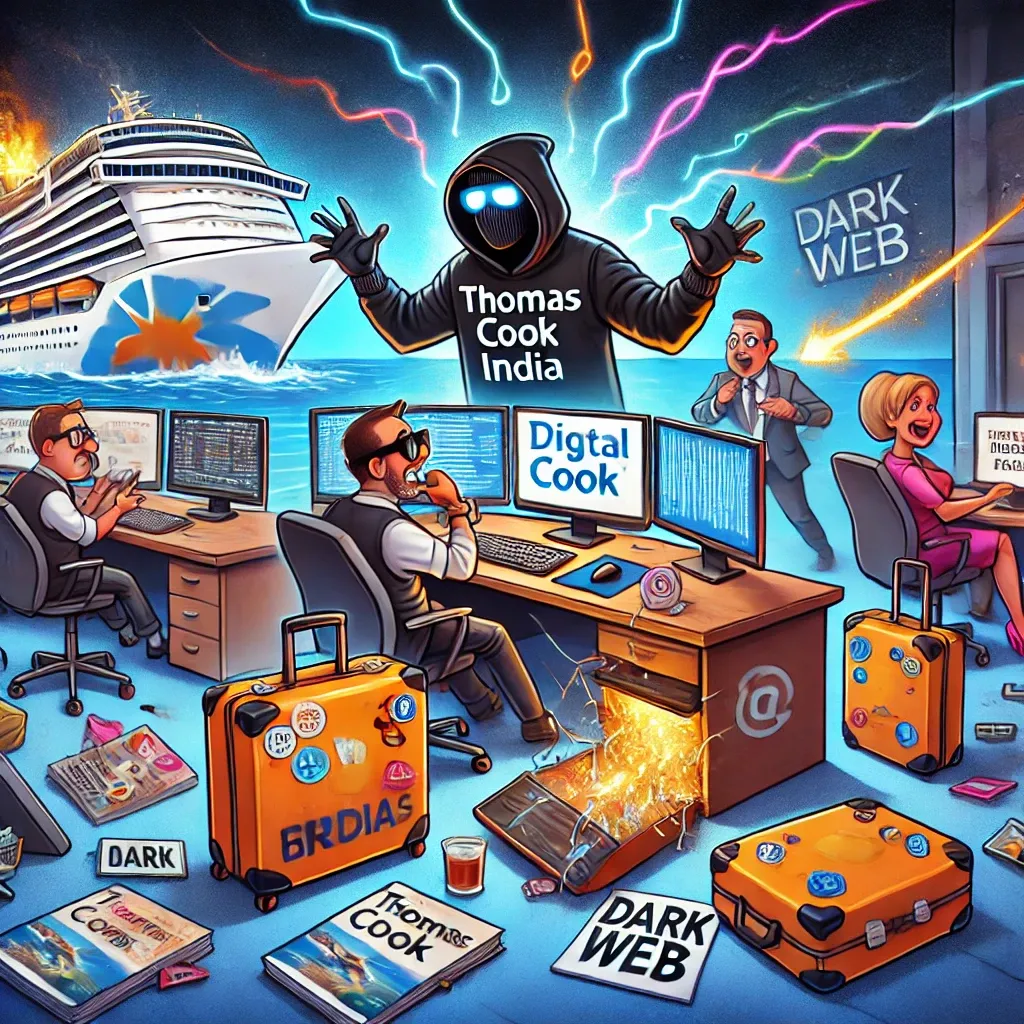Cyber Breach Chronicles: When Thomas Cook India’s IT Got “Cooked”

Ah, Thomas Cook (India) – a name that conjures up images of luxurious getaways, pristine beaches, and carefree travelers sipping Mai Tais while their Instagram stories light up with envy-inducing snaps. But as it turns out, the company wasn’t just catering to jet-setting millennials and retired cruise enthusiasts. No, no. It also unwittingly rolled out the red carpet for an altogether different kind of traveler – cybercriminals. Yes, dear reader, Thomas Cook India’s IT systems were recently treated to an all-expenses-paid trip to Breach City. Population? Apparently, too many.
Let’s start with the basics. Somewhere in the shadowy recesses of the internet – where neon-lit keyboards clack ominously, and hackers sip Red Bull like it’s champagne – someone decided that Thomas Cook India was ripe for the picking. Perhaps it was the allure of customer data, or maybe the sheer thrill of showing a company with "Cook" in its name how to really serve up a mess. Either way, the intruders had their virtual passports stamped and waltzed right in.
What did the IT team do, you ask? Did they unleash their inner Keanu Reeves à la The Matrix to fend off the attackers? Well, not quite. As soon as the breach was detected, they shut down the systems faster than you can say "CTRL+ALT+DEL." Bravo, Thomas Cook! Nothing screams "mission accomplished" like pulling the plug. It’s the digital equivalent of turning off the Wi-Fi when your kids won’t do their homework.
And the company’s response? A masterclass in corporate calm. "We have a comprehensive Cyber Security Policy," they assured us. Ah, the irony. A "comprehensive" policy that failed to prevent the breach in the first place. It’s like telling the passengers on the Titanic, "Don’t worry, we have a lifeboat manual!" after the iceberg has already RSVP’d.
The attackers, whose identities remain unknown, have yet to publish their own press release, but we can only speculate on their motives. Were they looking for a getaway? Trying to score frequent flyer miles? Or were they just big fans of irony, targeting a travel agency during peak holiday planning season? Whatever the case, the hackers didn’t just steal data – they also managed to hijack the company’s reputation for security.
Meanwhile, customers are left wondering if their personal information has been packed off on its own mystery tour. Will their credit card details show up on the dark web? Will their vacation plans mysteriously change to include a "mandatory" detour to a call center in Siberia? Who knows? But hey, at least the hackers didn’t mess with the brochures.
And what about Thomas Cook’s website? Oh, it’s down, my friend. Gone. Poof. Like that one friend who always promises to Venmo you for dinner but never does. The site is "inaccessible," which is just a polite way of saying, "We’re frantically trying to fix this before it becomes a Wikipedia case study in cybersecurity disasters."
But let’s not be too hard on Thomas Cook. After all, they’re not the first, and certainly not the last, to fall victim to cyber shenanigans. In a world where ransomware is more common than workplace donuts, breaches like this are par for the course. The real question is: What next? Will Thomas Cook rise from the ashes, phoenix-like, with a renewed commitment to safeguarding their systems? Or will they quietly rebrand, hoping everyone forgets this happened faster than last year’s New Year’s resolutions?
In the end, perhaps this breach is a lesson for us all. It’s a reminder that even the biggest, most well-respected companies can have a bad day. And also, that somewhere out there, a hacker is probably laughing so hard they spilled their Red Bull. If nothing else, at least someone’s having a good time.
Cheers to you, Thomas Cook India. Here’s hoping your IT systems get a well-deserved vacation – and not the kind that involves being held hostage by cybercriminals in exchange for Bitcoin.
Bon voyage!
Comments ()